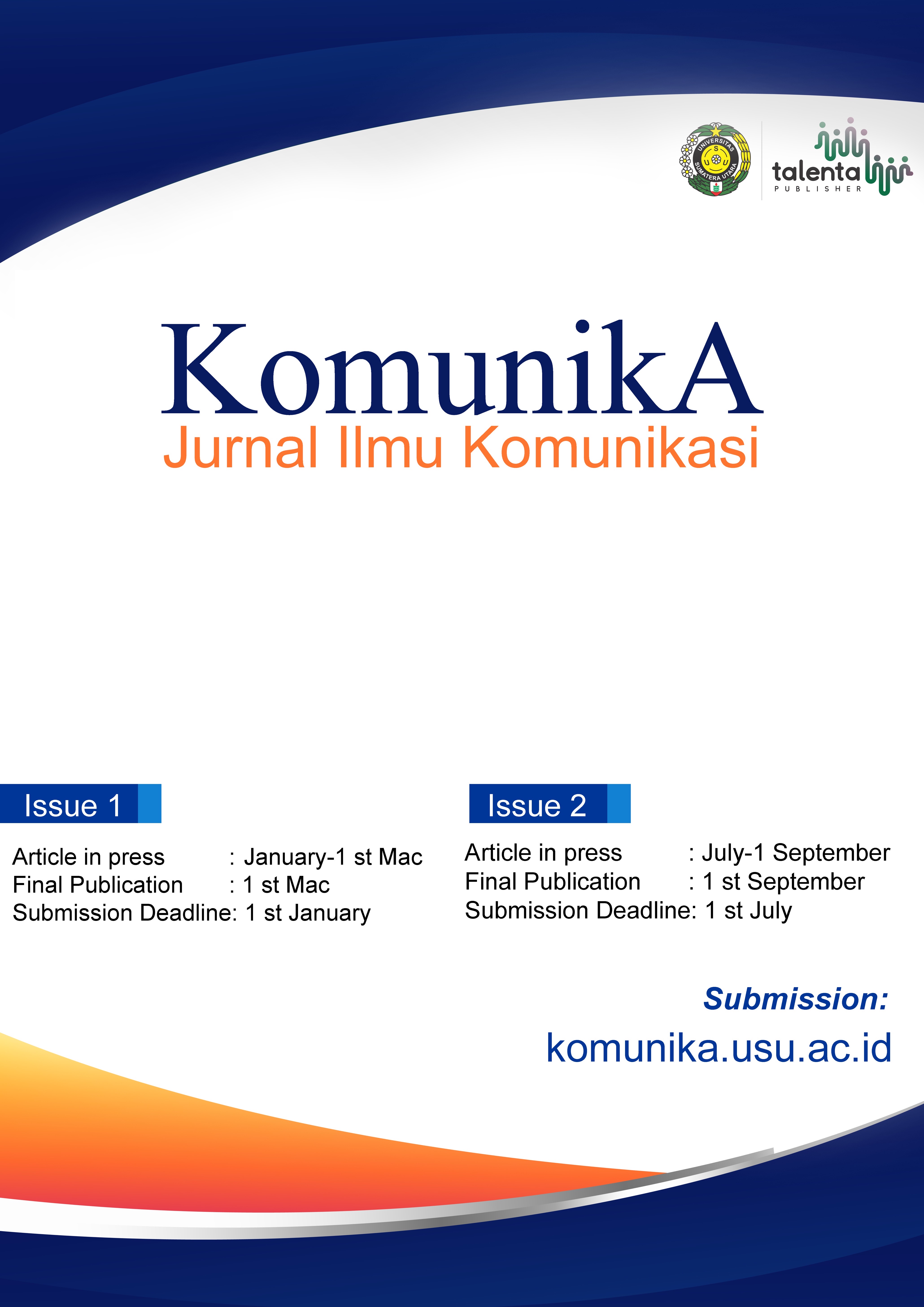Interpersonal Communication In Handling Student Indisiplinary Behavior at SMP Swasta Taman Siswa Polonia.
DOI:
https://doi.org/10.32734/komunika.v20i01.15807Keywords:
Interpersonal Communication, Indisiplinary, StudentAbstract
The focus of this research is the interpersonal communication efforts made by the Guidance Counseling teacher in handling student indisciplinary behavior and the communication barriers that occur in handling it. The theory used is interpersonal communication theory (Joseph A. Devito). This research method uses qualitative methods. The results of the study found that: the efforts made by counseling guidance teachers in dealing with students who commit disciplinary actions are by (1) Openness, through openness the counseling guidance teacher can find out clearly what is the main reason students commit disciplinary actions by calling students personally (2) Empathy, through empathy the counseling guidance teacher feels directly what is actually the main problem of students, through the expression of students' feelings and attitudes so that the counseling guidance teacher can then provide motivation and advice so that in the future the student does not repeat his actions. (3) Support and positive attitude, through the support of counseling teachers who already understand the conditions of students who commit disciplinary actions try to accept with positive thoughts so as not to affect emotions.Teachers find solutions by not scolding students so that communication is effective and the message of advice given to students is also conveyed properly. (4) Equality. The counseling teacher tries to give full trust to students not to repeat their actions, by giving trust the counseling teacher believes the student will think again when committing disciplinary actions because their teacher has given them trust. The barriers found in the interpersonal communication process are first, psychological barriers where students are afraid or embarrassed (minder) when they know they are called by the counseling guidance teacher so that students become closed and unable to communicate well.Second, technical barriers, where there is only one counseling teacher so that counseling services become less optimal. Third, cultural barriers mean that differences in socio-cultural backgrounds between counseling teachers and students result in differences in perceptions so that counseling teachers must provide understanding repeatedly to equalize perceptions.
Downloads
Downloads
Published
Issue
Section
License
Copyright (c) 2024 KomunikA

This work is licensed under a Creative Commons Attribution-ShareAlike 4.0 International License.








